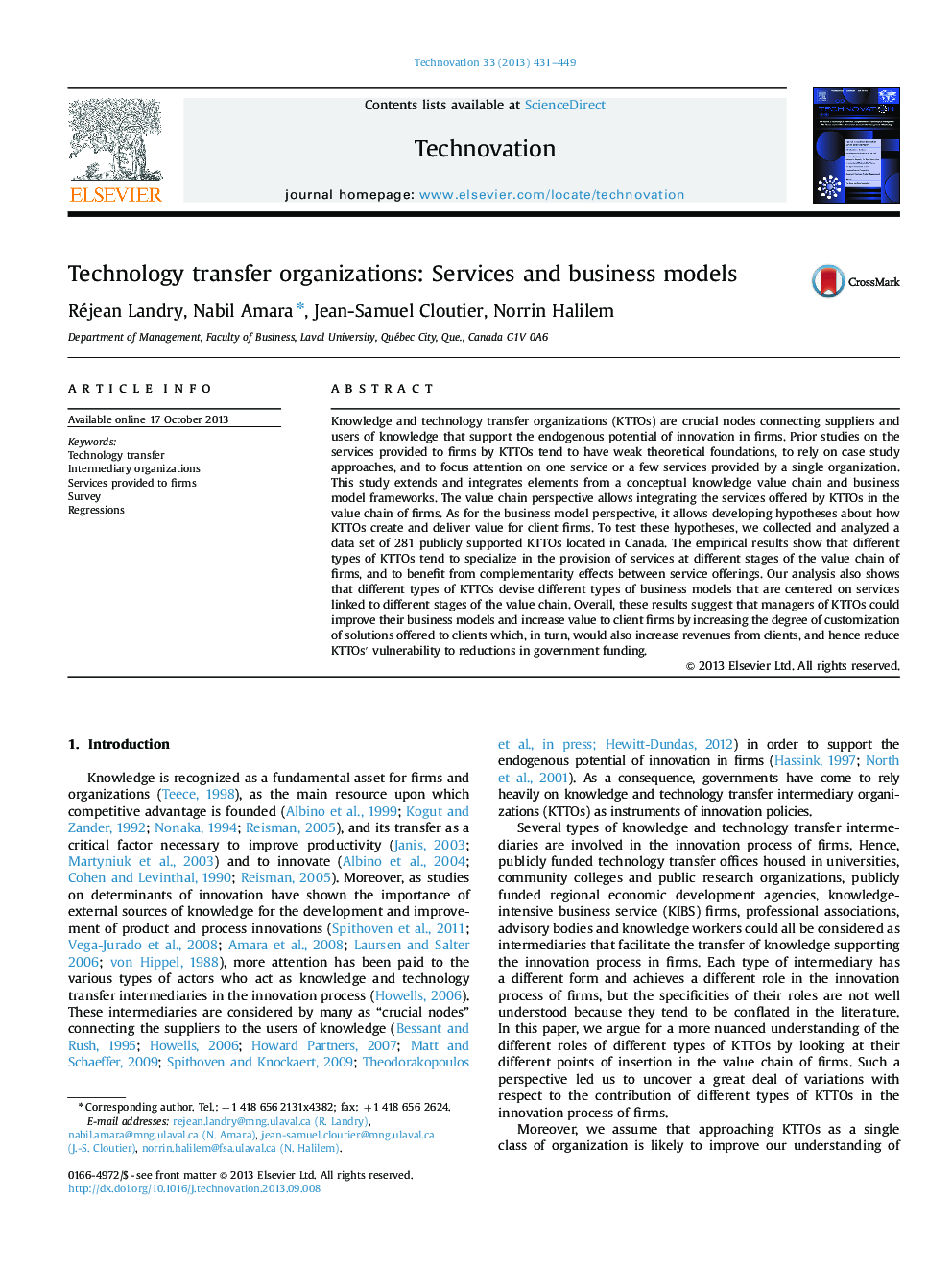| Article ID | Journal | Published Year | Pages | File Type |
|---|---|---|---|---|
| 1022004 | Technovation | 2013 | 19 Pages |
•This study integrates in a value chain 21 services provided to firms by KTTOs.•The econometric exercise shows that KTTOs tend to specialize in the provision of certain services of the value chain.•They also benefit from complementarity effects between service offerings.•Overall, four business models emerged from the statistical analysis.
Knowledge and technology transfer organizations (KTTOs) are crucial nodes connecting suppliers and users of knowledge that support the endogenous potential of innovation in firms. Prior studies on the services provided to firms by KTTOs tend to have weak theoretical foundations, to rely on case study approaches, and to focus attention on one service or a few services provided by a single organization. This study extends and integrates elements from a conceptual knowledge value chain and business model frameworks. The value chain perspective allows integrating the services offered by KTTOs in the value chain of firms. As for the business model perspective, it allows developing hypotheses about how KTTOs create and deliver value for client firms. To test these hypotheses, we collected and analyzed a data set of 281 publicly supported KTTOs located in Canada. The empirical results show that different types of KTTOs tend to specialize in the provision of services at different stages of the value chain of firms, and to benefit from complementarity effects between service offerings. Our analysis also shows that different types of KTTOs devise different types of business models that are centered on services linked to different stages of the value chain. Overall, these results suggest that managers of KTTOs could improve their business models and increase value to client firms by increasing the degree of customization of solutions offered to clients which, in turn, would also increase revenues from clients, and hence reduce KTTOs′ vulnerability to reductions in government funding.
